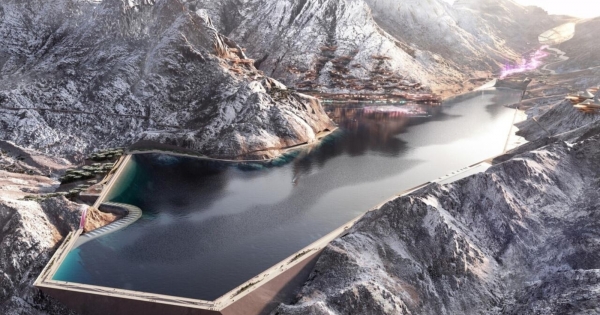The sudden decision to grant the Kingdom of Saudi Arabia the right to host the Asian Winter Games in 2029 is driven by a dual logic: the use of sporting events as a front to improve the image and the policies of international sports organizations. are running forward in their desperate search for countries to host their events.
It is hard to imagine the huge gap between the organization of ski competitions in Sapporo, Japan, where the first Winter Masters took place in 1986 and the last in 2017, and the organization of ski competitions in the Trogina mountain wilderness, which is fifty kilometers long. from the coast of the Red Sea, where no skier has yet been.
France’s Johan Cleary, Olympic downhill runner-up, lamented the move and told Arm C on Tuesday that it was “a dramatic event for our sport.” Federation Michel Fillon said he was “surprised” by the decision of the Olympic Council of Asia.
At the end of 2021, Dubai hosted the slalom events at the Beijing Winter Olympics in the refrigerated hall of a huge mall, and the temperature outside was 30 degrees Celsius.
However, the hosting of these games in Saudi Arabia, which is facing the problem of climate change, raises many questions, with the expected increase in temperature due to the energy impact due to poor drainage of local water resources and the construction of artificial slopes. .
– ‘Catchy’ –
But Saudi Arabia’s advancement on the map of world sports is not surprising in itself, given the investments it has made, whether it’s in F1 racing, cycling, international golf, or also in football by buying England’s Newcastle United. , as well as preparation for filing documents for the World Cup in 2030.
Behind every project that needs to be implemented, there is a specific goal. According to Raphael Le Maguarique, a specialist in the geopolitics of sports in the Gulf countries from the University of Tours in France, the goal of the Asian Games is “primarily economic”.
The researcher believes that there is an ongoing hidden rivalry with Qatari and Emirati neighbors, regional pioneers in sports diplomacy, and that Riyadh “essentially wants to shed light on its future city,” NEOM.
Built by Crown Prince Mohammed bin Salman, this multi-billion dollar complex is nothing more than an eye-catching design so far. But its promoters want to launch it in 2026 with year-round ski slopes, an artificial lake, palaces and luxury hotels.
“There are many unknowns about the snow and the implementation of the entire project,” warns Le Magirec.
Extremely low precipitation (less than 50 mm per year according to various sources) from a climatic point of view supports the hypothesis that snow does not fall naturally even in the middle of winter.
But “for the moment” Saudi Arabia’s awarding of the Games is “primarily a distraction” and, in Le Maguaric’s assessment, should be understood “entirely in a regional context.”
– ‘It’s high time to change’ –
By hosting the Asian Games, the kingdom “seeks not to appeal to European audiences”, but to attract the attention of the wealthy classes of the Middle East, Russia, India and China, “adhering to neo-liberal logic and having no idea of the environment. or human rights.
On the other hand, the choice of the Olympic Council of Asia may come as a surprise, as sports organizations are increasingly weighing their reputation against the social and environmental impacts of their competitions, which have been carefully identified by researchers and NGOs.
In the absence of another candidate, “The Olympic Council of Asia can’t be that picky and decided it’s better to go to Saudi Arabia than not to go anywhere,” says Pim Verschoren, a sports geopolitics specialist at the University of Rennes II in France. .
Japan and China, respectively, hosted the Tokyo Summer Olympics and the Beijing Winter Olympics, and they abandoned the Asian Winter Games after hosting six of the first eight games, while the Olympic Council of Asia needs host countries to , “to continue politically and economically”.
“The biggest question is who will be the first organizer to scale down the size of the event in order to comply with sustainable development standards,” emphasizes Verschoren.
But according to Al-Jami, the bodies seem to be “a heavy burden and take a long time to change,” due to the risk of “delays” for long periods due to the climate emergency.
Source: El Iktisad
